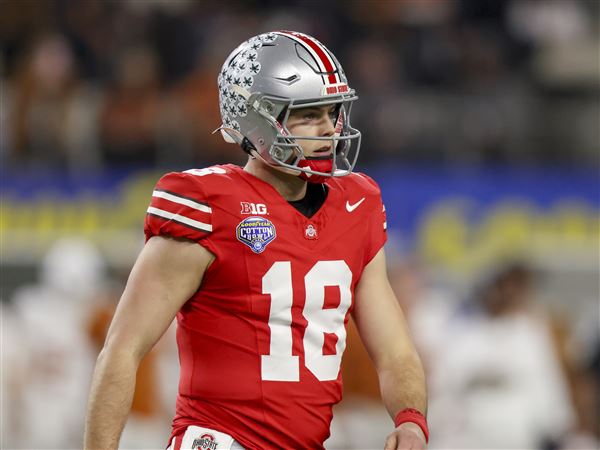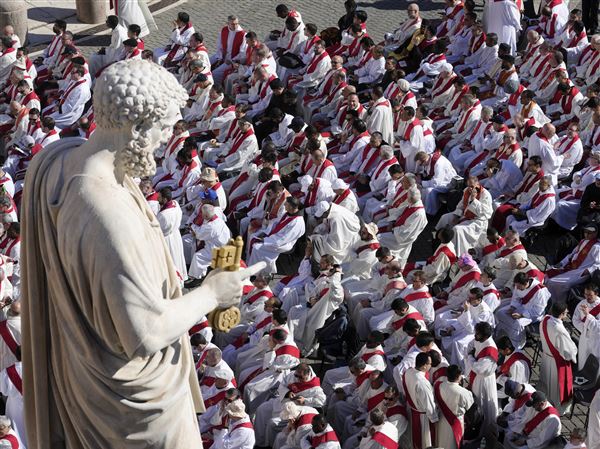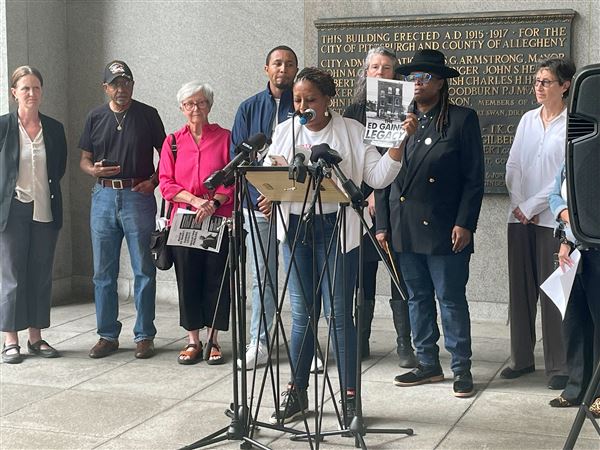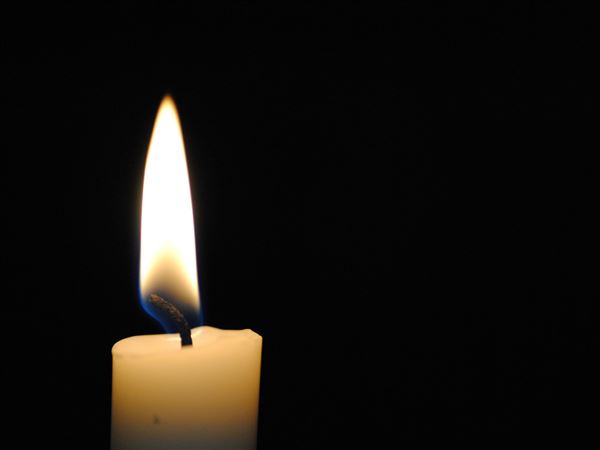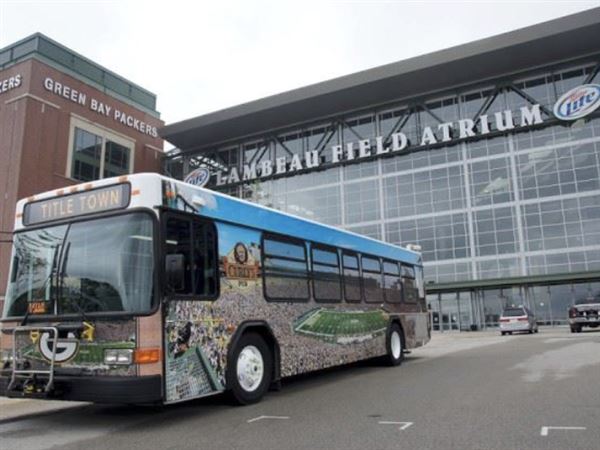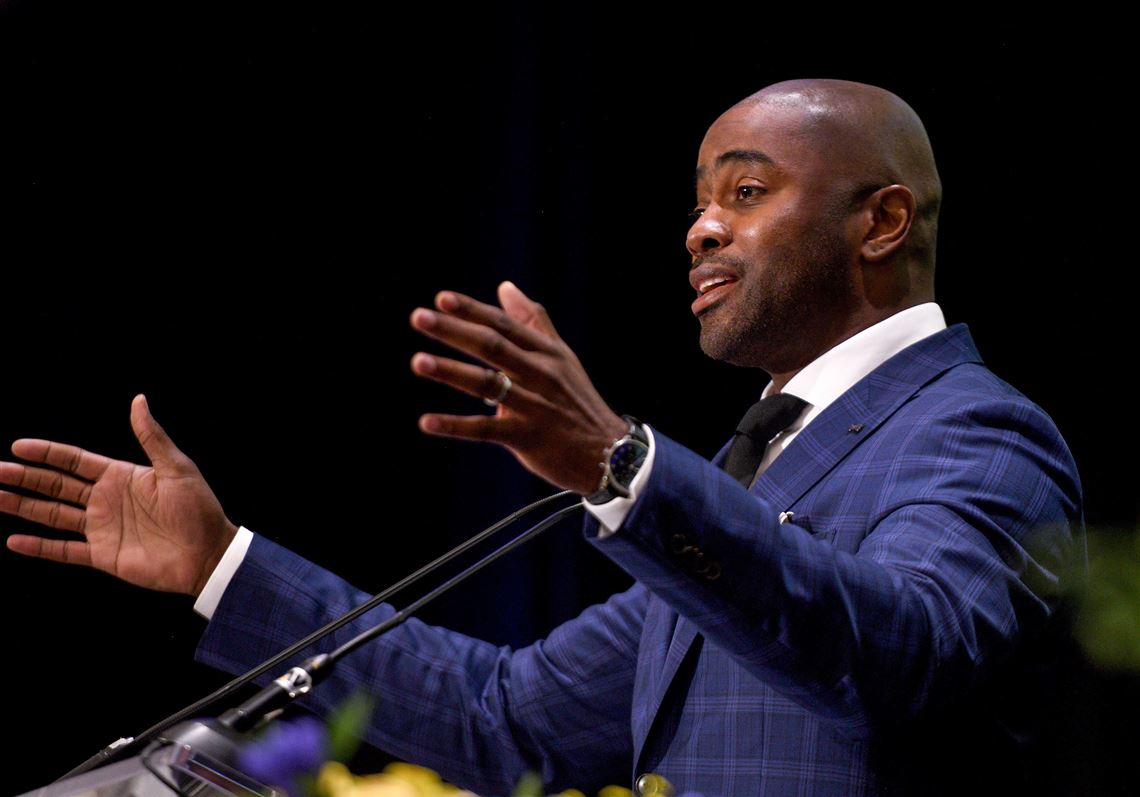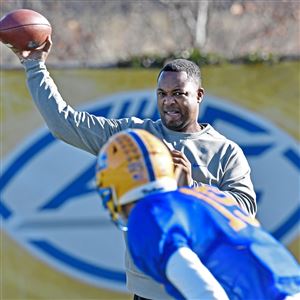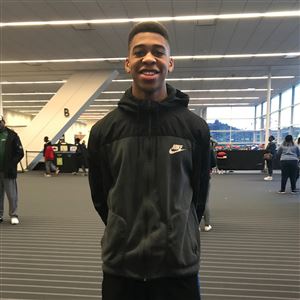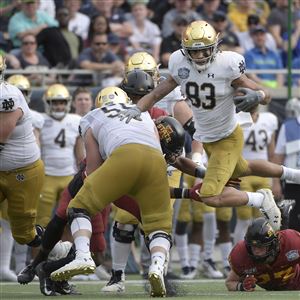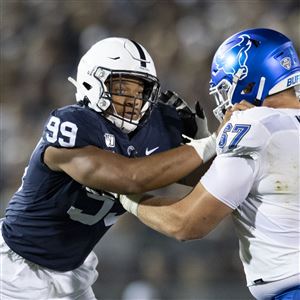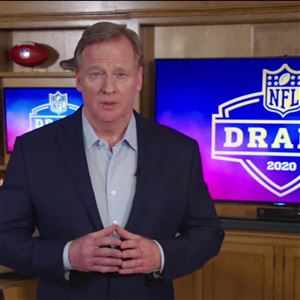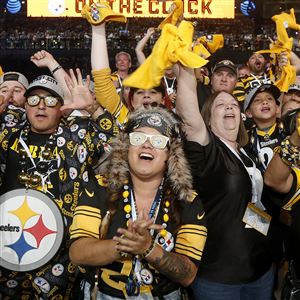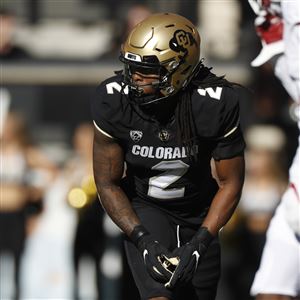Curtis Martin detailed the call in his Pro Football Hall of Fame enshrinement speech eight years ago. On April 22, 1995, the former Pitt running back picked up the phone at his mother's home in Pittsburgh, and Bill Parcells was on the other line. Parcells asked if Martin wanted to join the Patriots, the Allderdice grad obliged, and he was selected in the third round of the '95 draft, No. 74 overall, by New England.
When Martin hung up with Parcells, he turned to his family and blurted out, “Oh my gosh, I do not want to play football.” He did anyway. The passion wasn't there, but the drive to use football as a vehicle for change was, heeding advice he received on draft night from a pastor in the room.
Martin let out an exhale on Thursday afternoon, looking back on that night and his enshrinement retelling. “You've probably heard all about that before,” he told the Post-Gazette in a phone interview. Then, he proceeded to tell a story that never got the same publicity.
Martin did not expect a call from Parcells on draft night. In fact, nearly 25 years ago to the day, Martin was under the impression that Parcells' future boss might give him a ring: Cowboys owner and general manager Jerry Jones.
“There was a guy from the Dallas Cowboys who was [at my home] with a contract in-hand, and he told me Dallas was going to take me with their first pick of the second round,” Martin said. “He said Jerry insisted on players who aren't first-round picks signing on the spot when they get drafted. So he had the contract there for me to sign for when they were going to take me.”
Understandably, Martin's family and friends eagerly awaited the second round.
Five running backs — Penn State's Ki-Jana Carter, Michigan's Tyrone Wheatley, Washington's Napoleon Kaufman, Tennessee's James Stewart and Colorado's Rashaan Salaam — went in the first. Imagine seeing five backs go that early in 2020.
Martin also watched as teammate Ruben Brown, a star offensive tackle and later a College Football Hall of Fame inductee, was selected No. 14 overall by the Buffalo Bills. None of Brown's highlight tape, broken down on ESPN by former Pitt coach Mark Gottfried, featured Martin. The tailback missed all but two games in his final year with Pitt before skipping a redshirt and declaring for the NFL.
Still, Dallas was seemingly interested in pairing Martin with Emmitt Smith, the NFL's leading rusher in 1991, 1992 and 1993. The Cowboys were supposed to draft in the No. 41 slot, nine picks into the second round. But a trade back had Martin zeroed in on No. 46 as the presenter approached the podium.
With the 46th pick overall, the Dallas Cowboys select ... running back from Alabama, Sherman Williams.
Martin and his entire draft party turned and stared at Dallas' representative, who stood there awkwardly, holding a contract that would never be signed.
“Everyone looked at him like he was crazy,” Martin said with a laugh. “It was funny. I just told him, 'Look man, don't worry about it. That's what you were told. It's not a problem.'”
The Cowboys employee hung around for a few minutes after Williams' selection before slipping out.
“I'll never forget, my mother made some soul food, and he was a white guy,” Martin added. “He said he always wanted to try collard greens. So my mother gave him a plate of collard greens, he ate them and then shortly after he left.”
At least the Cowboys employee got something out of it. Martin came up empty, at least in the moment.
It ended up working out for Martin. The former Panther was selected 26 picks later by the Patriots, where he started immediately and racked up more than 1,000 yards in three consecutive seasons. He later signed with the Jets and finished his career with 14,101 rushing yards, which currently ranks sixth all-time, ahead of LaDainian Tomlinson, Jerome Bettis, Eric Dickerson and fellow Pitt product Tony Dorsett. Not bad for a guy who didn't think he'd get drafted at all coming out of college.
College and pro evaluators alike, including Pitt head coach Johnny Majors, advised against Martin's jump to the NFL. An ankle injury not only forced him to miss most of the 1994 season, but also allowed durability concerns to fester. Teams were turned off, leaving Martin to prepare, both mentally and physically, for eventual camp tryouts.
But he caught a break two weeks before the Senior Bowl.
In Jan. 1995, Martin remembered that a recruiter for the showcase game gave him his business card a year earlier, telling the then-promising Pitt back that he had talent.
“He told me, 'No matter what, I want you to be in the Senior Bowl next year,'” Martin recalled. So, the 190-pounder used his “no matter what” call, finagled his way into the Senior Bowl as a fullback and took advantage of the one opportunity he got.
In practice leading up to the game, the North team kept drilling a crack-back running play in which Martin, as the fullback, had to block a 320-pound nose tackle. He was popping the interior run-stuffer so violently that a scout wanted to see him do it with the ball in his hands. Giants head coach Dan Reeves, who ran the North team, tossed Martin a bone and put him at tailback for the same inside run.
Martin doesn't remember who the pulling center was. He doesn't recall which fullback led the way. He doesn't even know who handed it off to him. It might have been Steve McNair or Kerry Collins, didn't really matter. Martin hit the hole, made the first guy miss and broke for a touchdown.
“They wanted to see more after that,” Martin said, smiling through the phone. “For me, it was that one play that changed my life.”
Martin parlayed that Senior Bowl experience into an invite to the scouting combine, where he posted the best vertical leap and broad jump among running backs. That showing, coupled with a healed ankle, prompted teams' early-round interest.
Well, apparently not early enough for the Cowboys. But 25 years later, Martin harbors no ill will.
“It ended up being the best thing for me, because there's no way I would've went down there and started as a rookie with Emmitt Smith there,” Martin said. “Time goes by fast. Man, 25 years, that seems like a lifetime. When I look back personally, I don't think that it could have gone any better for me.”
John McGonigal: jmcgonigal@post-gazette.com and Twitter @jmcgonigal9
First Published: April 24, 2020, 12:30 p.m.
